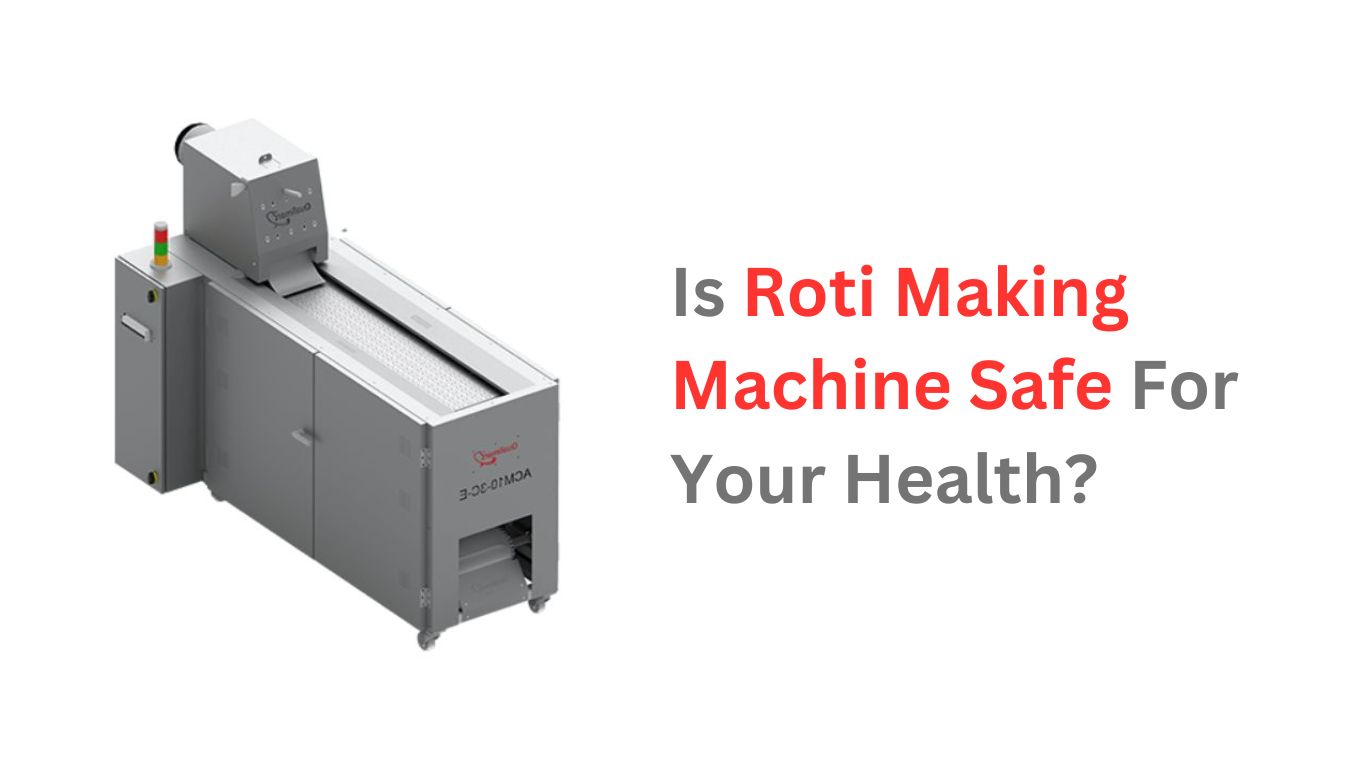Roti Making Machines have become increasingly popular in modern households, offering convenience and efficiency in the kitchen. These machines automate the traditional process of roti making, promising quick and effortless meals. As more people embrace this technology, questions arise about its impact on health and safety.
In this blog post, we will explore the safety aspects of Roti Making Machines and delve into whether they are truly beneficial for your well-being.
The Roti Making Process – Traditional vs Machine-Made Roti
Roti making has been a traditional practice in many households, but with the advent of technology, Roti Making Machines have become increasingly popular for their convenience. These machines automate the process of kneading dough and flattening it into rotis.
In traditional methods, making roti involves manually kneading the dough, rolling it into flat circles, and then cooking it on a hot griddle or tawa.
Roti Making Machines streamline this process by automating the kneading and flattening stages as they typically consist of compartments for flour, water, and other ingredients.
Ingredients and Health Considerations
When it comes to Roti Making Machines, it’s crucial to pay attention to the ingredients used in the dough. Traditional homemade roti typically involve basic ingredients like whole wheat flour, water, and salt, which are generally healthy. However, with machine-made roti, there may be additional ingredients added to the dough mix, such as preservatives, stabilisers, or artificial flavours.
These additives can raise concerns about their impact on health. Processed ingredients may lack the nutritional value of fresh, homemade ingredients. Additionally, some individuals may have sensitivities or allergies to certain additives commonly found in pre-packaged dough mixes.
Hygiene and Sanitization
Keeping your Roti Making Machine clean is essential for your health. Here’s how to maintain hygiene:
- Regular Cleaning: After each use, wipe down the machine with a clean cloth to remove any dough or residue.
- Deep Cleaning: Periodically, disassemble the machine according to the manufacturer’s instructions. Wash removable parts with warm, soapy water and let them air dry completely before reassembling.
- Sanitization Practices: Use food-safe sanitizers or disinfectants to clean surfaces that come into contact with the dough. Ensure thorough rinsing to remove any chemical residues.
Preventing Cross-Contamination: Keep raw ingredients and finished rotis separate. Avoid using the same utensils for handling raw dough and cooked rotis to prevent bacterial contamination.
By following these simple hygiene practices, you can ensure that your Roti Making Machine remains safe for you and your family’s health.
Nutritional Value and Control
Roti is a staple food in many cultures, valued for its simplicity and versatility. When considering the nutritional value and control in using Roti Making Machines, it’s essential to understand the differences between homemade and machine-made roti.
Nutritional Comparison
Homemade roti allows for control over ingredients like whole wheat flour, water, and salt, offering a healthier option compared to processed alternatives. Machine-made roti may vary in nutritional content depending on the ingredients used and the manufacturing process.
Control Over Ingredients
With homemade roti, you have the freedom to choose high-quality ingredients and control portion sizes. This allows for customization to meet dietary preferences and health goals. However, machine-made roti may lack this level of control, potentially containing additives or preservatives for extended shelf life.
Expert Opinions and Recommendations
- Nutritional Balance: Nutritionists emphasise the importance of maintaining a balanced diet. While Roti Making Machines offer convenience, they suggest being mindful of the ingredients used in the dough. Opting for whole wheat flour and minimal additives ensures a healthier roti.
- Portion Control: Health professionals advise on portion control to prevent overconsumption of roti, especially for those monitoring their carbohydrate intake. Roti Making Machines allows users to control the size and thickness of each roti, promoting moderation.
- Hygiene Practices: Experts stress the significance of maintaining cleanliness and hygiene when using Roti Making Machines. Regular cleaning and sanitisation of the machine’s components prevent bacterial contamination and ensure food safety.
- Moderation and Variation: Incorporating a variety of grains and flours into roti recipes adds nutritional diversity to your diet. Experts recommend experimenting with different flour combinations to enhance the nutritional value of your rotis.
- Physical Activity: While Roti Making Machines simplifies the process of making rotis, experts remind us of the importance of physical activity. Engaging in regular exercise complements a healthy diet and promotes overall well-being.
Final Words
Choosing whether to use a Roti Making Machine involves weighing convenience against health considerations. While these machines offer time-saving benefits, it’s crucial to prioritise your well-being. Always opt for machines that prioritise hygiene, regulate ingredients, and comply with safety standards. Remember, your health is paramount, so make informed choices that align with your values and needs.

